Politics
ADEMOLA ADEYEMI-BERO CONFIRMED OPEC GOVERNOR FOR NIGERIA AND APPOINTED CHAIRMAN, OPEC BOARD OF GOVERNORS FOR 2025
Published
4 months agoon
By
Ekwutos Blog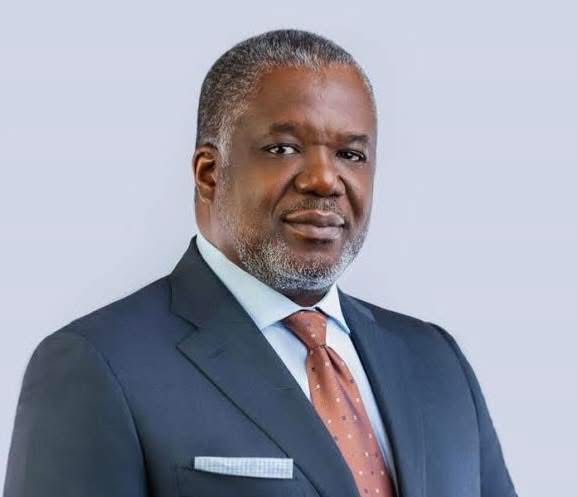
Nigeria has reaffirmed its leadership in the global energy sector with the appointment of Ademola Adeyemi-Bero, Nigeria’s Governor for OPEC, And Chairman OPEC Board of Governors for 2025.
His appointment was confirmed at the 189th meeting of the OPEC Conference.
Prior to his appointment as the Chairman of the OPEC Board of Governors, he was confirmed as Nigeria’s OPEC Governor for the year 2025.
This highlights Nigeria’s influence within the Organization of the Petroleum Exporting Countries (OPEC) and underscores the nation’s commitment to shaping global energy policies.
Minister of State for Petroleum Resources (Oil), Senator Heineken Lokpobiri, has Commended Adeyemi-Bero’s elevation as a testament to the country’s active contributions to the global oil industry.
The minister emphasized that Adeyemi-Bero’s appointment provides Nigeria with a vital platform to advocate for balanced energy policies that benefit oil producers, consumers, and the global economy.
The Minister also expressed profound gratitude to Ambassador Gabriel Aduda, the outgoing Nigerian OPEC Governor, for his exemplary service.
He acknowledged Ambassador Aduda’s instrumental role in advancing Nigeria’s interests within OPEC and ensuring the country’s influential presence in global energy discussions.
In The Same vein OPEC has appointed Adeeb Al-Aama, Governor of Saudi Arabia for OPEC, as the Alternate Chairman of the Board of Governors for 2025.
The OPEC Conference had representatives from member countries who deliberated on significant issues, including reports from the Secretary-General and the Economic Commission Board (ECB).
The Conference also extended the tenure of Haitham Al Ghais as OPEC Secretary General for another three years, effective August 1, 2025.
Member nations commended his exceptional leadership and the Secretariat’s unwavering commitment to the organization’s objectives.
You may like


Innoson Vehicle Manufacturing Head Office Nnewi is currently under demolition because of the road construction project— a bold move in overriding public interest.


THINK TANK: SENATOR MOHAMMED ALI NDUME’S DELIBERATE DISTORTION OF DEVELOPMENT LOANS DATA: SETTING THE RECORD STRAIGHT
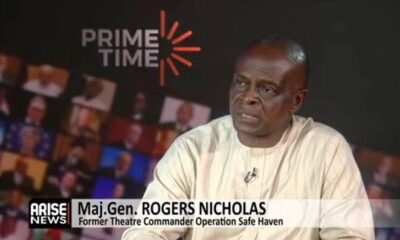

Southeast are discouraged from joining the military because of poor pay. You Are Paying Soldiers N50k To Go And Die—- Retired Major General Rogers Nicholas


Kenyan woman arrested after she posted photo of herself brandishing gun on WhatsApp and threatening any man who dumped her
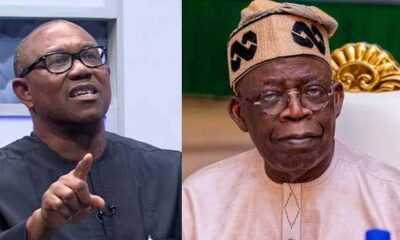

The CEO of the troubling company called Nigeria is retreating in far away land in France – Peter Obi calls on President Tinubu to return home over pressing issues
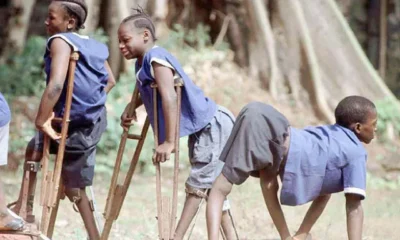

Katsina targets three million children for polio immunisation — Official
Politics
THINK TANK: SENATOR MOHAMMED ALI NDUME’S DELIBERATE DISTORTION OF DEVELOPMENT LOANS DATA: SETTING THE RECORD STRAIGHT
Published
56 minutes agoon
April 16, 2025By
Ekwutos Blog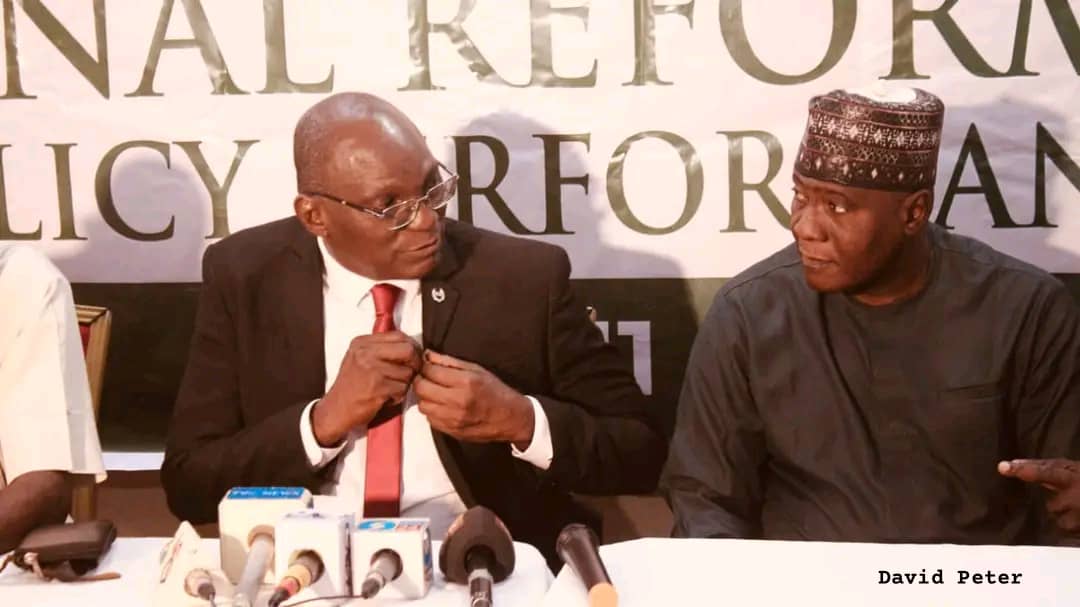
Once again, the Independent Media and Policy Initiative (IMPI) finds it necessary to set the public record straight following Senator Mohammed Ali Ndume’s recent and deliberate misinterpretation of facts regarding Nigeria’s development loans, seemingly aimed at casting aspersions on President Bola Ahmed Tinubu’s reform agenda.
It is disappointing that Senator Ndume, now in his fourth consecutive Senate term, discussed Nigeria’s national debt without offering proper context or enlightening Nigerians. During a recent television interview, he questioned the rationale and transparency of borrowings totalling $9.45 billion (about N13 trillion) since June 2023.
With public concerns already heightened around government borrowing, it was incumbent on a senior legislator such as Senator Ndume to provide accurate and holistic information—especially when Nigeria’s total public debt, while rising to N144.67 trillion in local currency, actually declined in dollar terms from $108.23 billion at the end of December 2023 to $94.23 billion by December 2024. This signals a remarkable reduction of $14 billion within a year—an unprecedented fiscal achievement since 2006 that deserves acknowledgement, not a misrepresentation.
Rather than commend this historic reduction, Senator Ndume claimed, without substantiation, that these loans are being misapplied to so-called ‘non-tangible’ projects. This criticism is shortsighted, betraying a narrow understanding of the multifaceted nature of development. Development today is not limited to physical infrastructure alone but increasingly encompasses human capital—skills, knowledge, education, and health—that underpin a productive society and stronger economy.
Countries like India and China have surged by building roads or factories and investing in their people. Human capital development—expanding access to education, healthcare, social protections, gender inclusion, and agricultural productivity—drives lasting national prosperity.
Senator Ndume’s suggestion that only physical projects matter is not supported by development economics or Nigeria’s need for inclusive growth. Notably, the loans are not commercial bank advances but concessionary, development-backed loans from institutions like the World Bank—often with very low interest rates, extended maturities (up to 40 years), and multi-year moratoria. Such terms make these loans an efficient and responsible instrument for funding national development priorities that commercial lenders will not touch.
India and China, for instance, developed their technical capacity deliberately and strategically, understanding that human skills and knowledge would be their ultimate competitive trade advantage.
The soft and intangible projects funded by the federal government are as important as the “tangible, accountable” projects preferred by Senator Ndume.
Of course, we are sure that the Senator is conscious that those loans for intangibles that he mentioned are not commercially valued loans like those made available by commercial banks. Indeed, development-backed loans are classified as concessionary loans with usually long tenures, as long as 40 years, and interest rates as low as one per cent, sometimes with a four-year moratorium.
Naturally, no commercial bank is inclined to fund these aspects of human development because they have no basis for physical and commercial quantification. However, they constitute a significant pivot in human growth and sustainability. Realising the critical need to invest in human capital, multilateral agencies emerged to fill the fiscal gaps and address and facilitate investments focused on human capital development.
The lead entities in this sector are the World Bank and the International Monetary Fund (IMF). The World Bank seeks to help countries invest in and develop their people to be productive citizens and active economic contributors. The philosophical underpinning of the World Bank’s operations is prioritising investments in education, healthcare, and social protections to realise a stronger economy full of healthy, thriving adults. This forms the kernel of the World Bank loans to Nigeria.
Our analysis shows that World Bank loans accounted for nearly 80% of Nigeria’s multilateral debt in 2024, rising modestly from $21.15 billion in 2023 to $22.32 billion in 2024—a 5.5% increase, not the $9.5 billion figure Senator Ndume cited. Meanwhile, Nigeria’s IMF debt fell sharply from $2.47 billion to $800.23 million (-67.6%) over the same period.
This evidence supports the view that the Tinubu administration is not carelessly accumulating debt but carefully balancing securing new credit for critical sectors and reducing overall public debt. The administration should be recognised for prudent debt management and reform focus, not unfairly disparaged.
Additionally, Senator Ndume’s claim that these loans bypassed parliamentary scrutiny is inaccurate. The World Bank credit approval process requires approval by its internal arms (IDA or IBRD) and subsequent concurrence by Nigeria’s National Assembly before disbursement.
For the record, the World Bank approved six projects (valued at $4.25 billion) for Nigeria in 2024, but actual disbursements between 2023 and 2024 stand at just $2.36 billion—far from the $9.5 billion claimed
Beyond this, we find it somewhat disconcerting that the Senator made efforts in that interview to misrepresent and, as it were, politicise the value of the debt secured by the Tinubu administration from the World Bank, putting it at $9.5 billion since the administration’s inception in June 2023. This is inappropriate, as such propagation of deliberately concocted misleading figures against a government with the apparent purpose of disparaging it and, in the same token, inciting the people against the government should be discouraged.
Nigeria’s debt profile is a loud testimony of a government that is not about the acquisition of debt but one that is adept at managing its debt portfolio by creating a positively skewed balance between new loans and paying down older ones. Thus, rather than impugn the capacity and the good standing of the government’s debt management approach, we submit that the Tinubu administration should be seen for what it is: a genuinely reform-focused administration.
On the whole, whereas the World Bank approved six projects valued at $4.25 billion for Nigeria in 2024, the actual disbursements between 2023 and 2024 amounted to $2.36 billion, a distant figure from the $9.5 billion Senator Ndume insinuated was the credit disbursed by the bank on account of parliamentary approvals.
We find Senator Ndume’s misstatements on development-backed loans deeply troubling and unworthy of a ranking lawmaker tasked with advancing Nigeria’s development priorities. Misrepresenting data to score political points is manipulative and undermines informed public debate.
We urge all policymakers, especially those in positions of authority, to prioritise accuracy and transparency in public discourse. Nigerians deserve nothing less than the unvarnished truth on critical national matters.
Omoniyi M. Akinsiju PhD
Chairman,
Independent Media and Policy Initiative (IMPI)
April 2025
Politics
The CEO of the troubling company called Nigeria is retreating in far away land in France – Peter Obi calls on President Tinubu to return home over pressing issues
Published
5 hours agoon
April 16, 2025By
Ekwutos Blog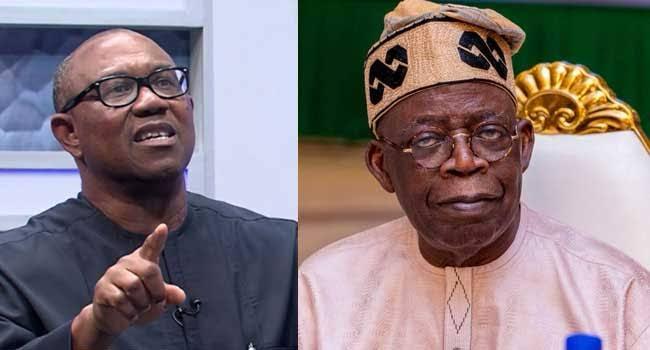
Amid all these, the CEO of the troubling company called Nigeria is retreating far away land in France- Peter Obi calls on President Tinubu to suspend his stay in France and return home over pressing National issues
Former presidential candidate, Peter Obi, has called on President Tinubu to quickly suspend whatever he is doing in France and rush home to take responsibility of all the disturbing issues.Obi recounted how in the 2 weeks President Tinubu has been away, over 150 Nigerians have lost their lives to insecurity across Nigeria, especially in Plateau and Zamfara states. He mentioned that the repeated pipeline explosions in the Niger Delta further reflects a nation in distress. He went on to state that in the North East, Borno state leaders are bemoaning the return of insurgency with troops and civilians being killed randomly. In the South East, the story is the same with k!llings and abduction
Obi stated that amidst all these issues, the ‘’CEO of the troubling company called Nigeria is retreating far away land in France from the Company’s headquarters.”
He called on the President to immediately rush back home to address all the pressing issues.
His statement reads
‘’Mr. President, Domestic problems Beacons.
I am compelled at this time in our lives as a nation to call on our retreating President’s attention to the security challenges at home, which entails that he immediately suspend his ongoing retreat in a foreign land and come home to address the overwhelming security situation across the country.
This urgent call has become necessary following the rising incidents of crimes and criminalities all over Nigeria with an apparent absence of governance.
In the 2 weeks you have been away, over 150 Nigerians have lost their lives to insecurity across Nigeria, especially in Plateau and Zamfara states.
The repeated pipeline explosions in the Niger Delta, further reflect a nation in distress.
In the North East, Borno state leaders are bemoaning the return of insurgency with troops and civilians being killed randomly. In the South East, the story is the same: killings and abduction.
Amid all these, the CEO of the troubling company called Nigeria is retreating far away land in France from the Company’s headquarters.
The primary duty of any government is securing the lives and property of its citizens and one wonders the type of retreat going on in another country where peace has been secured by their leaders while blood continues to flow in our country
The fight for a better Nigeria is not about individuals; it is about ensuring that every citizen can see, feel, and benefit from the policies and decisions of those in power.
I, therefore like to urge Mr President to quickly suspend whatever he is doing in France and rush home to take responsibility by addressing these disturbing issues
That is the new Nigeria that the nation seeks.
News
Nigeria loses $2bn annually to medical tourism — FG
Published
6 hours agoon
April 16, 2025By
Ekwutos Blog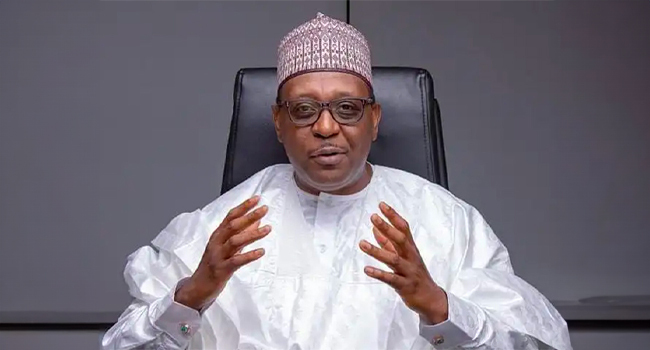
The Coordinating Minister of Health and Social Welfare, Professor Ali Pate, has revealed that Nigeria loses approximately $2 billion annually to medical tourism. He emphasised the urgent need for the country to build health sovereignty and reduce reliance on foreign medical care.
Represented by the Chief Medical Director of Lagos University Teaching Hospital (LUTH), Professor Wasiu Adeyemo, Pate made the statement during the commissioning of Avon Medical Centre, a newly established 50-bed speciality hospital in Surulere, Lagos.
He attributed the staggering loss to a lack of public confidence in the local healthcare system and limited access to quality medical services. Despite this, Pate expressed optimism that facilities like Avon Medical Centre could help reverse the trend.
He noted that the government is committed to revitalising the health sector through initiatives such as the Nigeria Health Sector Renewal Investment Initiative and the 2024–2027 Health Sector Strategic Blueprint.
“This is not just about stopping medical tourism. It is about building health sovereignty—the ability of a country to care for its people, and to develop its institutions, talent, and innovation,” Pate stated.
“The government is ready to co-create pathways for private-sector engagement, whether through health insurance expansion, regulatory reform, or partnerships with national health programmes. We welcome Avon Medical and all new private providers as partners in building a healthier, safer, and more equitable Nigeria.”
Also speaking at the event, Lagos State Governor Babajide Sanwo-Olu called for stronger collaboration between the public and private sectors, stressing that the government alone cannot address the challenges in healthcare delivery.“We must create an enabling environment for private equity and investment to thrive,” he said. “Avon Medical has etched its name in the sands of time in this industry—not only in Lagos but across Nigeria.”
In her remarks, Chairperson of Avon Healthcare Limited, Awele Elumelu, highlighted the pressures on Nigeria’s healthcare system caused by a shortage of doctors, hospital beds, and essential equipment.
“In 2009, we took the bold step to make world-class healthcare accessible and affordable for all—not just the privileged few. That decision birthed Avon Medical and Avon HMO,” she said. “Africa carries over 20 percent of the global disease burden, yet has only one percent of healthcare resources
“What we are building is a healthcare system that leaves no one behind. We believe in Afri-capitalism—the idea that the private sector has a responsibility not just to generate profit but to create lasting impact.”

Innoson Vehicle Manufacturing Head Office Nnewi is currently under demolition because of the road construction project— a bold move in overriding public interest.

THINK TANK: SENATOR MOHAMMED ALI NDUME’S DELIBERATE DISTORTION OF DEVELOPMENT LOANS DATA: SETTING THE RECORD STRAIGHT

Southeast are discouraged from joining the military because of poor pay. You Are Paying Soldiers N50k To Go And Die—- Retired Major General Rogers Nicholas
Trending

 Trending6 months ago
Trending6 months agoNYA demands release of ‘abducted’ Imo chairman, preaches good governance
- Business6 months ago
US court acquits Air Peace boss, slams Mayfield $4000 fine

 Politics6 months ago
Politics6 months agoMexico’s new president causes concern just weeks before the US elections
- Entertainment6 months ago
Bobrisky transferred from Immigration to FCID, spends night behind bars
- Entertainment6 months ago
Bobrisky falls ill in police custody, rushed to hospital

 Politics6 months ago
Politics6 months agoRussia bans imports of agro-products from Kazakhstan after refusal to join BRICS

 Politics6 months ago
Politics6 months agoPutin invites 20 world leaders
- Politics1 year ago
Nigerian Senate passes Bill seeking the establishment of the South East Development Commission.

